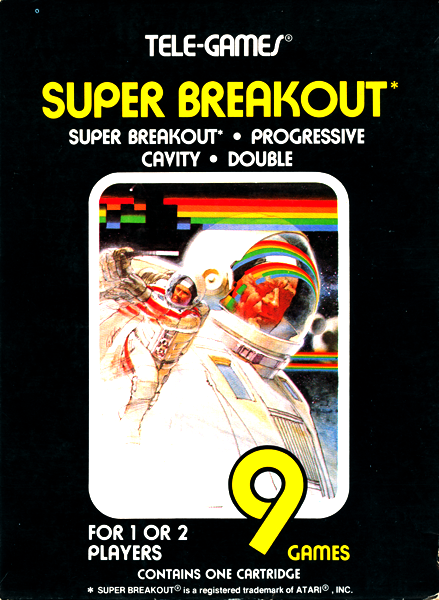UPC
--
Developer
Atari, Inc., Atari, Paradox Interactive
Publisher
Atari, Inc., Atari, Namco, Xbox Game Studios, Majesco Entertainment
Product Description
Super Breakout on the Atari 2600 is indeed a sought-after collector’s item among retro gaming enthusiasts and collectors. Released in 1978, this classic arcade game was adapted for the Atari 2600 console, allowing players to experience the addictive brick-breaking gameplay in the comfort of their homes.
Super Breakout holds significant collector’s value for several reasons. Firstly, it is one of the early titles released for the Atari 2600, making it a part of gaming history and a representation of the console’s early library. As one of the earliest arcade-to-console adaptations, it holds nostalgic value for those who grew up with the Atari 2600.
Furthermore, Super Breakout is considered a standout title in the Atari 2600 library. It offers simple yet addictive gameplay, challenging players to clear the screen of bricks by bouncing a ball against them using a paddle controller. Its straightforward mechanics and engaging gameplay make it a timeless classic that continues to captivate gamers.
While not considered extremely rare, finding a complete copy of Super Breakout in excellent condition can be a challenge. Its enduring popularity among collectors and the passage of time have contributed to its desirability. Copies with their original box, cartridge, manual, and inserts intact, particularly in pristine condition, are particularly sought after.
Whether you’re a collector seeking to complete your Atari 2600 library, a retro gaming enthusiast looking for a classic brick-breaking experience, or a fan of gaming history, Super Breakout is a cherished gem that represents the early days of console gaming. Test your reflexes, break those bricks, and relive the excitement of Super Breakout on the Atari 2600. Don’t miss the opportunity to own this piece of gaming nostalgia.
Sears played a significant role in backing Atari during its early days. They marketed Atari products under their own label, known as Sears Tele-Games. This encompassed a range of hardware and software. It’s worth noting that almost all Sears games were essentially Atari games with Sears branding, with just a few exceptions.
Recent Transaction




